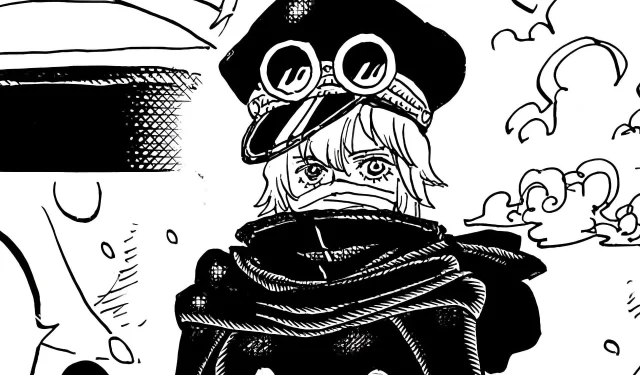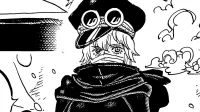Within the vibrant world of One Piece, the character Holy Knight Gunko is at a pivotal crossroads that may lead to an unprecedented act of betrayal. The thematic relationship between Gunko and drums hints at her future actions, particularly if she were to align herself with Luffy’s crew. Her name, which translates to “war drum,”offers insight into the impending conflict in her narrative, as her ties to Nika and the concept of the Drums of Liberation become increasingly significant.
Gunko’s juxtaposition of fear towards Nika and her fondness for Brook’s music illustrates her inner turmoil—caught between the responsibilities she bears as a Holy Knight and the allure of freedom represented by the Straw Hat Pirates. This ongoing conflict could act as a catalyst for development, possibly delving deeper into Joy Boy’s legacy beyond Brook’s influence.
Disclaimer: This article is based on speculation and reflects the author’s opinion.
The Rhythmic Link: Gunko, Brook, and the Drums of Liberation
An examination of Gunko’s name reveals deeper meanings. The Japanese characters “Gunko”(軍鼓) can be interpreted as “war drum,”highlighting the significance of rhythm and percussion. This is particularly relevant given Nika’s character, who embodies a liberating warrior dancing to drumbeats.
Despite her trepidation towards Nika, Gunko finds comfort in Brook’s music, signaling an internal conflict. This could suggest that a repressed part of her recognizes the liberation that Nika embodies. Brook’s famous “Yo-hohoho”carries a rhythmic similarity to the Drums of Liberation (“Doom-dut-da-da”), making it an essential point of analysis.
Notably, both “Yo-ho-ho-ho”and “Doom-dut-da-da”share a four-syllable pattern emphasizing specific beats, which can signify a deeper connection. Binks’ Sake, a beloved song by Brook rooted in ancient tradition, might be intricately tied to Joy Boy or Nika, acting as a medium through which the rhythm of liberation has been preserved across the ages.
Uncovering Gunko’s Implicit Desire: The Call of Freedom
Gunko’s fondness for Brook’s music, particularly in the New World, hints at her unrecognized connection to these themes of freedom. Her appreciation signifies a subconscious yearning for liberation—an identity suppressed during her time with the Holy Knights.
The idea that Gunko may have been an orphan who chose to join the Holy Knights out of dire necessity rather than genuine belief brings a nuanced layer to her character’s potential betrayal. An encounter with Luffy, embodying Nika’s will through his awakened Devil Fruit, could challenge her perception of loyalty and illuminate the hollowness of her current allegiances.
In this context, the Drums of Liberation could act as a pivotal force awakening Gunko’s hidden memories or emotions, leading her to question the choices she has made. Importantly, it seems Brook may not be the direct cause of Gunko’s shift but rather an unwittingly chosen messenger, carrying the ancient call for freedom.
Conclusion: The Awakening of Gunko and Her True Path
The intriguing notion that “Yo-hohoho”could be rooted in Nika’s original laughter deepens this analysis. Acknowledging this connection could trigger a significant awakening for Gunko, leading her to realize that her fears and affections are interconnected. This epiphany may ultimately push her to sever ties with the Holy Knights in favor of joining Luffy’s crew, who embody freedom and liberation.
Gunko’s path reveals her destined role as a champion of freedom, resonating through the rhythms that define her name—a war drum awaiting the call of liberation.


